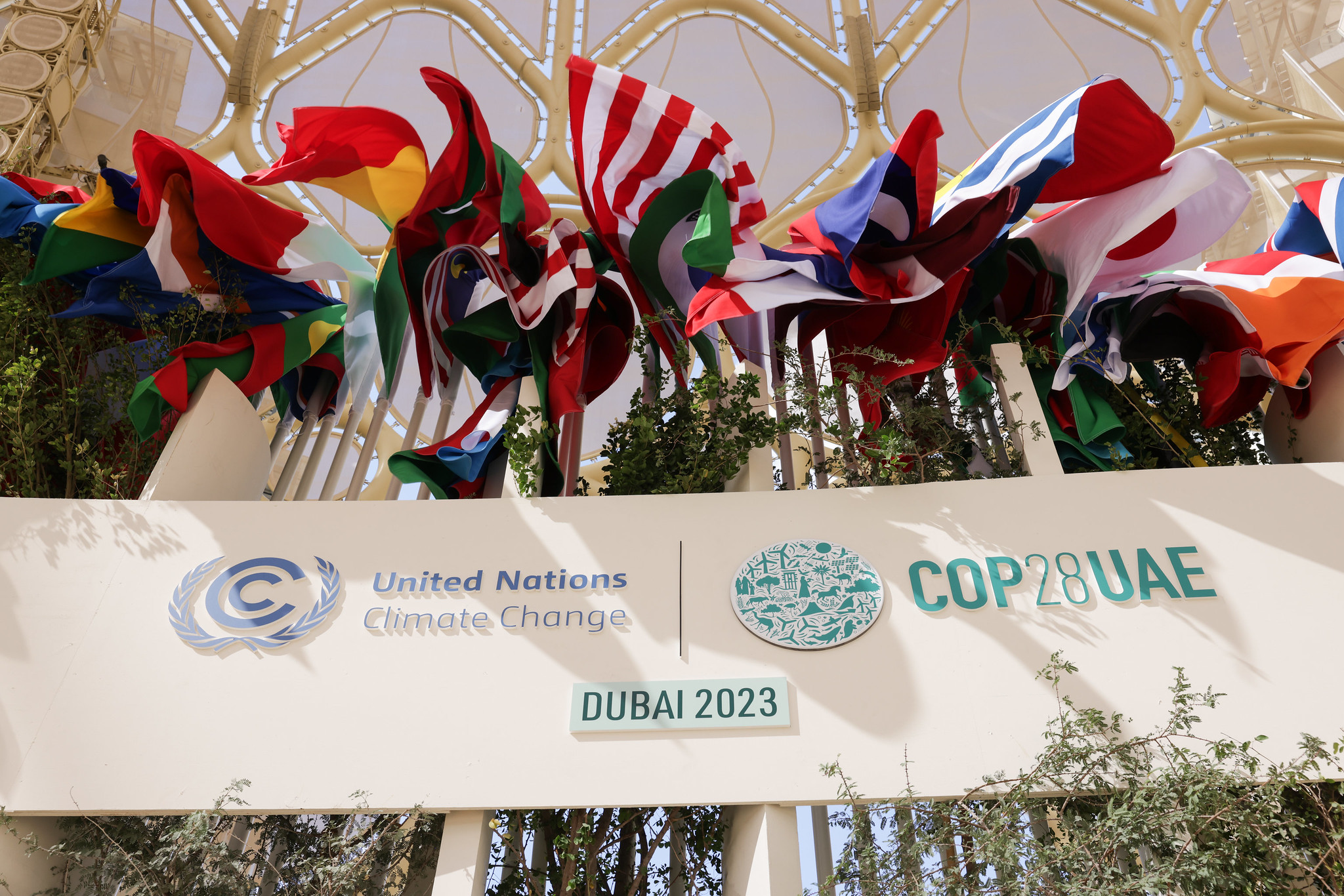Another major turning point in global climate action was reached recently with the conclusion of the 28th annual Conference of the Parties (COP 28) to the United Nations Framework Convention on Climate Change (UNFCCC). Representatives from 198 countries attended the conference, which took place in Dubai, United Arab Emirates, from November 30 to December 12, 2023. Notably, corporate leaders and prominent figures from the financial industry were there in unprecedented numbers.
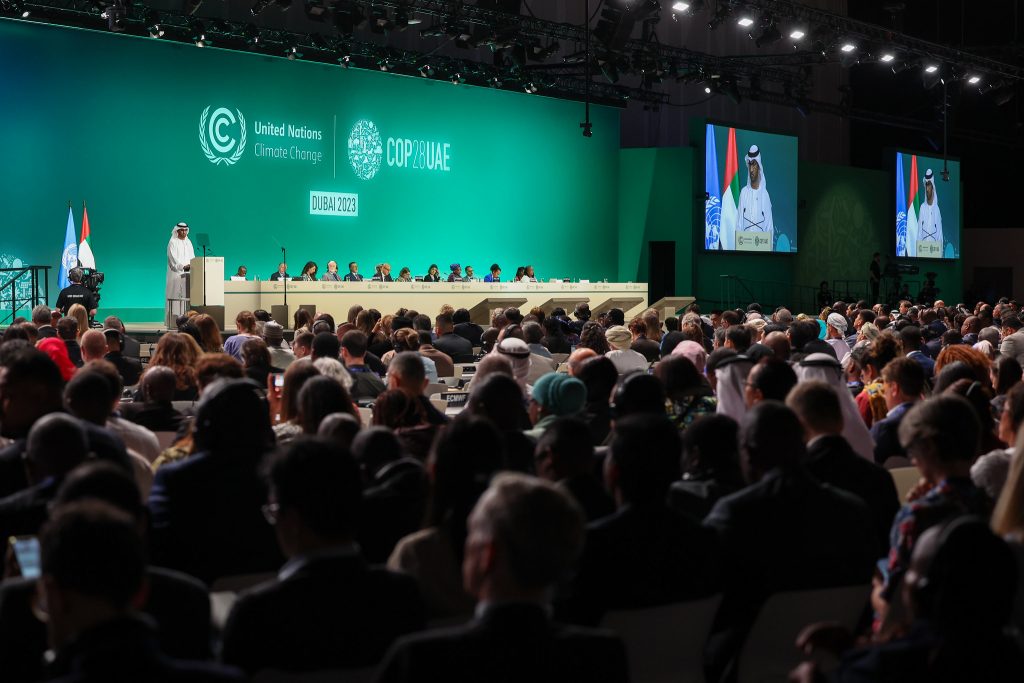
Deliberations and Key Themes
In order to address the causes of climate change and manage its effects, COP 28 was structured around four overarching themes. These topics covered finance, inclusion, frontline communities, and technology and innovation.
The future of fossil fuels was one of the conference’s most hotly contested subjects. The negotiations aimed to find a compromise on how the world should see coal, gas, and oil. Not only were the talks procedural, but they also might impact investment choices and market trends.
1. Improved Nationally Determined Contributions (NDCs): Examining and improving nations’ NDCs, which set forth their pledges to cut greenhouse gas emissions, was a major goal of COP 28. Many countries set more aggressive goals, indicating an increasing understanding of how urgent it is to fight climate change.
2. Global Climate financing: Supporting developing countries in their shift to sustainable practices was a major focus of discussions on climate financing. Richer countries promised to contribute more money to programs in vulnerable areas aimed at mitigating the effects of climate change.
3. Loss and Damage Mechanism: At COP 28, there were extensive discussions about loss and damage, acknowledging the irreversible harm that certain nations have experienced as a result of climate change. A thorough procedure to remedy loss and damage was agreed upon and impacted nations received financial and technical support.
4. Regulations for the Carbon Market: The goal of the conference was to encourage the trading of emission allowances by creating a strong global carbon market. To guarantee environmental integrity, accountability, and openness in carbon trading systems, precise rules were created.
5. Nature-Based Solutions: The importance of nature-based solutions in storing carbon and strengthening resistance to the effects of climate change was emphasized. Examples of these solutions include afforestation and sustainable land management. Proposals were exchanged to advance and expand these natural methods.
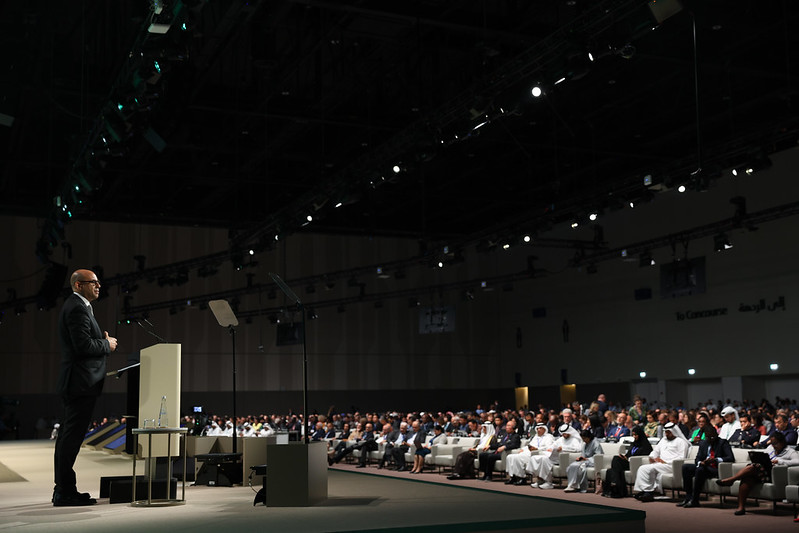
Outcomes and Implications
It is anticipated that COP 28’s conclusions will have a significant impact on investors, companies, and legislators. Any consensus on the phase-out of fossil fuels would be a commitment to combating climate change and might have an impact on financial choices. On the other hand, a breakdown in negotiations might point to a slower-than-anticipated energy shift.
COP 28 discussed fossil fuels, but it also prioritized moving quickly toward clean energy, giving wealthier nations financial support for climate action, and drafting a new agreement for developing countries. The conference also sought to address the lack of funding for adaptation, losses due to climate change, and mitigation, as well as the involvement of non-governmental parties.
1. Historic Commitments to Emission Reduction: Many countries have committed to more aggressive emission reduction targets at COP 28, which is being heralded as a turning point. It is anticipated that these pledges will play a major role in keeping the increase in global temperature to 1.5 degrees Celsius over pre-industrial levels.
2. Landmark Loss and Damage Mechanism: The creation of a loss and damage mechanism acknowledges the need for group accountability in addressing the effects of climate change that extend beyond adaptation, which is a noteworthy accomplishment.
3. Revisited Climate Finance Pledges: Richer countries have pledged to provide more funding for climate projects in developing nations, demonstrating a revived sense of mutual accountability and solidarity.
4. Technological Transfer Advancements: Deals were reached to make it easier for developing countries to acquire eco-friendly technologies, encouraging creativity and sustainable growth.
5. Global Youth and Civil Society Engagement: At COP 28, youth and civil society organizations demonstrated a high level of engagement, and the significance of their contributions to climate action was increasingly acknowledged. It was emphasized that inclusive decision-making processes are necessary for equitable and successful climate solutions.

Looking Ahead
Future international climate action is anticipated to be shaped by the decisions made at COP 28. Given that 2023 would be the warmest year on record, the meeting served as a reminder of the urgent need for action. The choices taken at COP 28 will be very important in defining our collective reaction as the globe struggles with the effects of climate change.
The stage has been set for more rapid action against climate change with COP 28. The conference’s discussions and conclusions highlight the critical need for international collaboration and creativity in our struggle against this grave menace.
Fossil Fuel
Now that COP28 in Dubai has come to an end, millions of people have demanded more and more, but the crucial pledge to “phase out” fossil fuels was left out of the deal, despite scientists’ urgent warnings.
The first “Global Stocktake (GST)” report, which examines nations’ efforts to cut emissions that contribute to global warming since the Paris Agreement was signed in 2015, was released this year. It functions as a kind of worldwide “report card,” giving countries advice on areas in which they need to make improvements.
The grade is a very bad D+. The findings are in.
In order to take serious climate action, there must be no exceptions, no dependence on unproven technologies, and an immediate phase out. The wealthiest nations and major polluters must also provide substantial financial support for this transition.
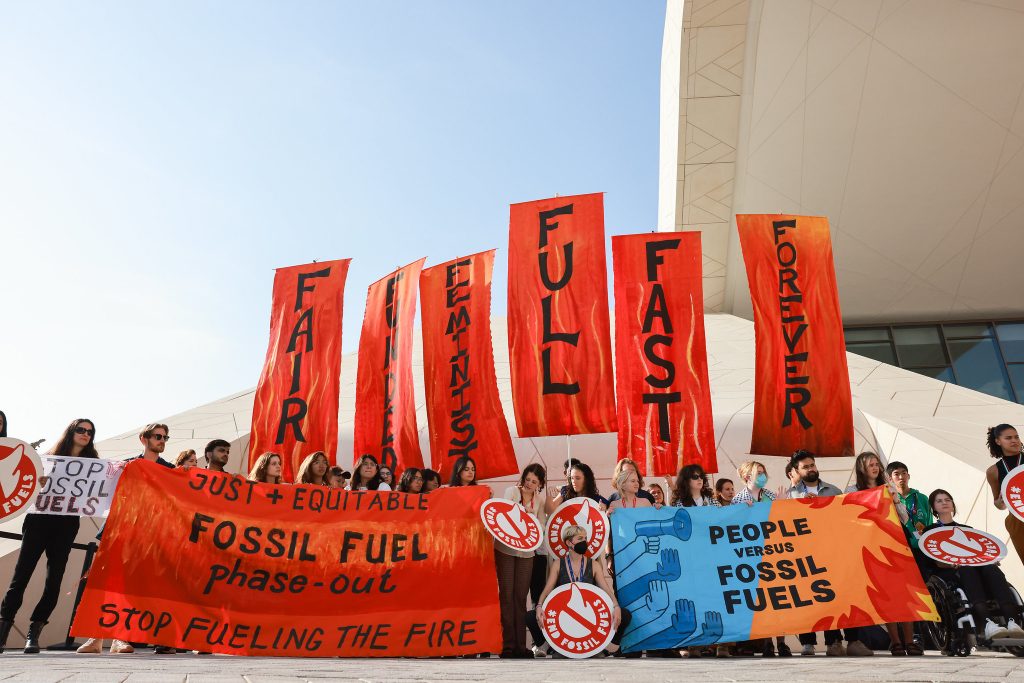
Human Rights and Defenders
The final draft drastically reduced the number of words pertaining to justice and human rights, with the sad wording only “encouraging” parties to “fully respect” these rights—a basic commitment that governments must carry out. The core of any solution to the climate must be people.
Investigations have revealed the role of authoritarian governments and abusive corporate actors who continue to silence, harass, and exclude Indigenous and rural communities, environmental lawyers, scientists, journalists, youth activists, and other crucial actors vital to solving the climate crisis. Since the Paris Agreement was signed in 2015, we have documented the killings of at least 1,390 land and environmental defenders.
Over 150 organizations urged the UNFCCC to identify and defend Defenders in the lead-up to COP. Nevertheless, the final language makes no mention of environmental and land protectors.
On the ground, the reality was the same. Even though it was dubbed the “most inclusive” COP, registered Indigenous groups were nevertheless outnumbered by those connected to the oil and gas industry. Protests were strictly regulated, and the venues allocated for public actions were closed.
Neidinha Suruí, a Brazilian activist and advocate for Indigenous rights, stated: “It does not matter how loud we are in the outside, claiming for access, those who hold the pen are never defenders”.
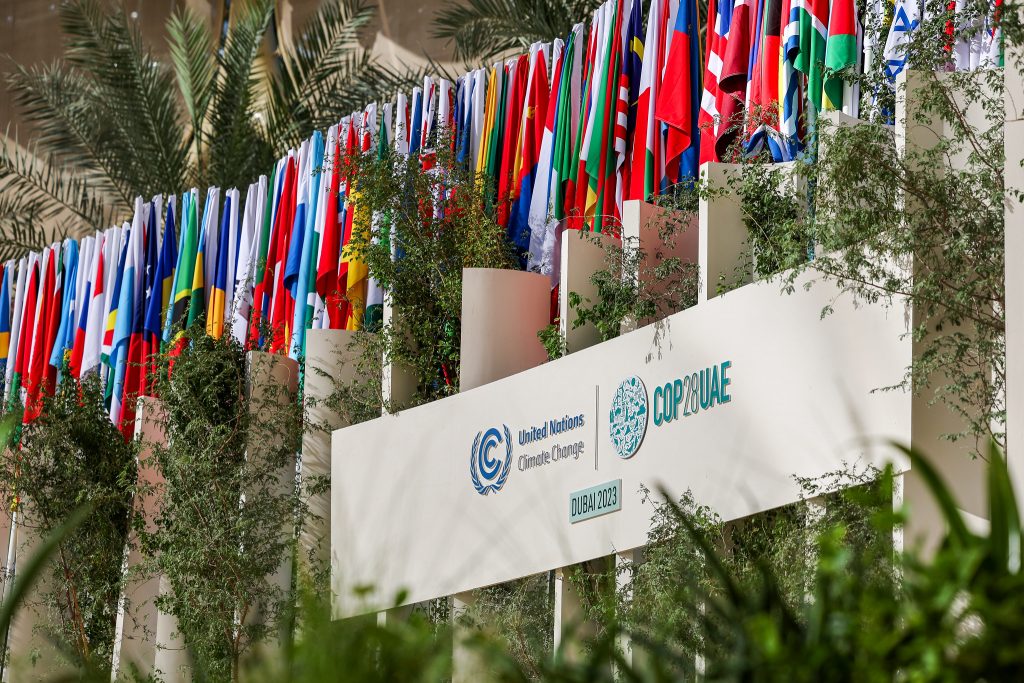
The Forest
The final wording recognized that more work will be required in order to stop and reverse deforestation by 2030. Nevertheless, during COP26, 145 international leaders had decided upon the same goal. Global rates of deforestation rose in the previous year.
Forests are now at the center of climate negotiations thanks to these agreements, but it’s still troubling that world leaders have disregarded the more urgent 2025 worldwide aim to stop deforestation caused by commodities.
Despite the fact that over 90% of the loss of tropical forests is caused by agricultural clearance, deforestation was not mentioned in the United Arab Emirates’ “flagship” declaration on net-zero food systems.
Agribusiness lobbyists also descended upon Dubai in unprecedented numbers, joining the deluge of fossil industry lobbyists at the COP venue. Their zero deforestation initiatives, spearheaded by industry, are no longer a useful cover-up.
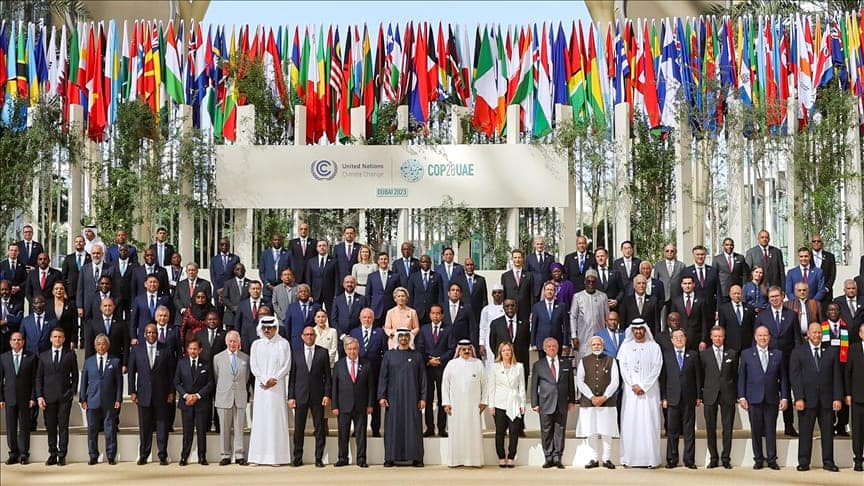
Liberia Forest
The 28th annual Conference of the Parties (COP 28) of the United Nations Framework Convention on Climate Change (UNFCCC), which was held in Dubai, had a sizable participation of Liberia’s forest communities.
Representation:
At COP 28, Liberia’s forest communities were represented by Mr. Andrew Y. Y. Zelemen, Head of Secretariat and National Facilitator of the National Union of Community Forestry Development Committees (NUCFDCs). Within the seven Forest Management Contract Areas spread across nine counties, the NUCFDCs represent twenty-three Community Forestry Development Committees (CFDC).
Advocacy: Mr. Zelemen promised the forest communities in Liberia and his organization that he would press the interests of these communities and take advantage of every chance presented by the international event1. He intended to take part in side talks regarding the following topics: carbon offsetting, indigenous communities, the effects of climate change on forest communities, and more.
Climate Financing: One of the main topics of conversation was how to finance climate change so that communities can profit from it. Mr. Zelemen wanted to guarantee that the various governments would guarantee that communities involved in forestry would reap the benefits of climate money.
Women Development Programs: Mr. Zelemen also intended to examine how women who are indigenous to a community might gain from women’s development initiatives. He stressed that community women shoulder a lot of the responsibilities for their families, and if programs are available for women, he would like to see community women gain from climate funding.
George M. Weah, the president of the Republic of Liberia, has once again called on major countries and the international community to adopt inclusive strategies to address the mounting risks posed by climate change and global warming.
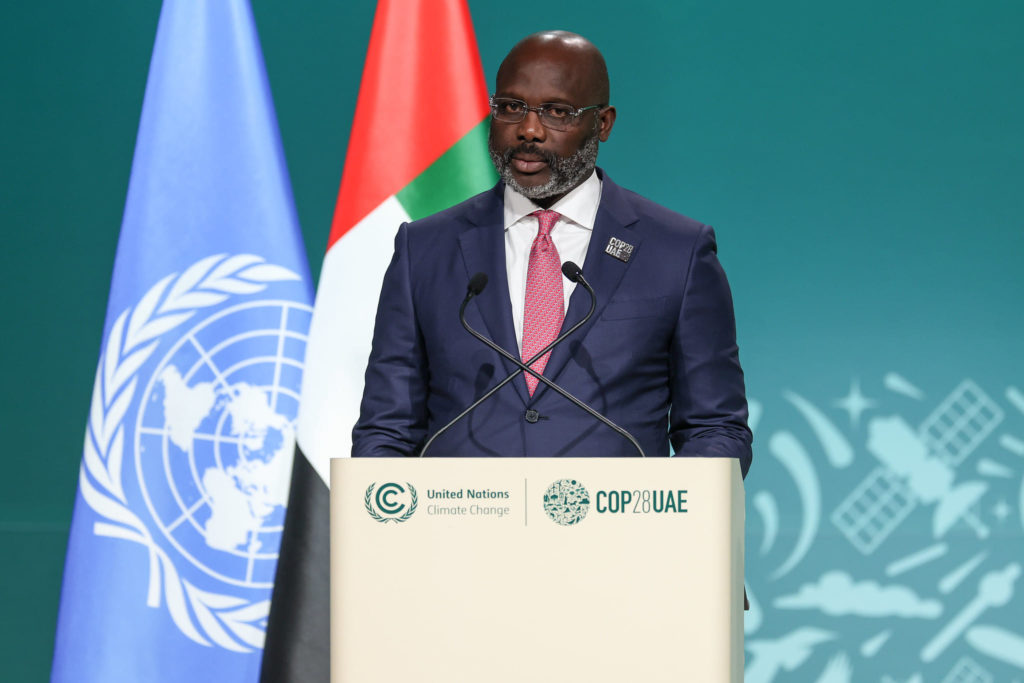
President Weah stressed the crippling effects that global warming is having on the planet and humanity during his speech to the Conference of Parties (COP28) being held in Dubai on Saturday. He also asked participants to take action by putting agreed-upon principles and commitments from earlier sessions into practice. “As we convene here at COP28, I stand before you in recognition of the unprecedented challenges our world faces today due to climate change,” the Liberian Leader stated.
To sum up, the forest communities of Liberia made a powerful impression at COP 28, speaking out in favor of their rights and promoting good climate financing.
Liberian-born Emmanuel Orlind Cooper is an accomplished multimedia journalist with extensive experience covering news and stories on a variety of media platforms. Orlind's work frequently demonstrates his profound grasp of the region and its complexity, given his Liberian heritage.
Now residing in Woodbridge, Virginia, he keeps connecting with readers across continents with his perceptive journalism and sharing his viewpoint. He is well-respected in the sector because of his unwavering commitment to honesty and morality, which sets him apart in the field.
Orlind's work is more than simply his job; it's a dedication to giving voice to the voiceless, illuminating unsung tales, and advancing the worldwide conversation on important concerns. His goal as a journalist is to use the media's power to change the world, not just to disseminate information. He is a key player in modern journalism because of the inspiration, education, and engagement that his work consistently provides.

